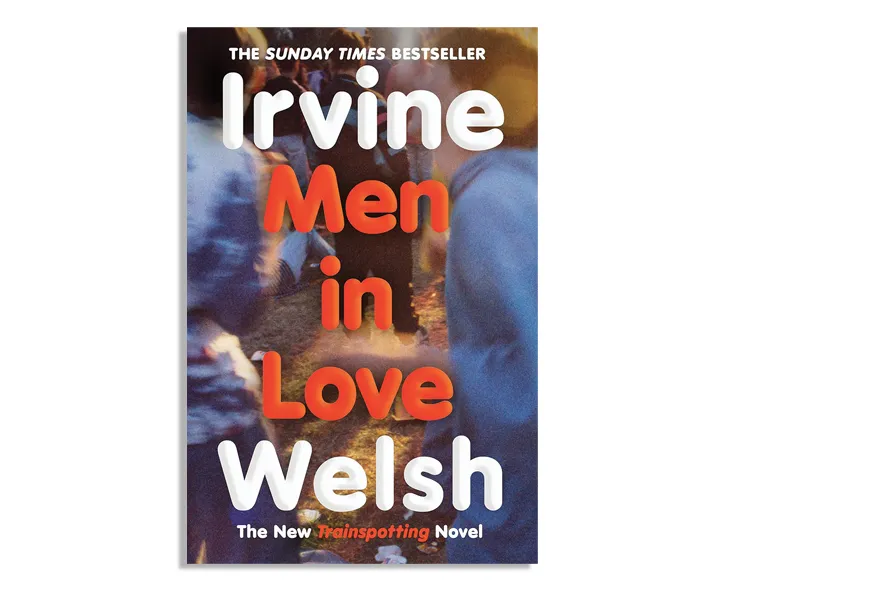SUE TURNER is fascinated by a book that researches who the largely immigrant workforce were that built the Empire State
The book feels like a writer working within his limits and not breaking any new ground, believes KEN COCKBURN

 cover
cover
Irvine Welsh
Men in Love
Jonathan Cape £16.00
IRVINE WELSH’S latest novel is an immediate sequel to his first, Trainspotting, published over 30 years ago in 1993.
Set in 1989-1990, it follows the Trainspotting crew of Renton, Begbie, Sick Boy, Spud and the others as they leave heroin behind and — in some cases — start to deliberate on the future.
Welsh has already written that future — Dead Men’s Trousers from 2021 brought their squabbling friendship into the mid-2010s — but instead of bringing it forward into the 2020s he turns back three and half decades to evoke a time of video recorders, landline phones and Jimmy Savile’s knighthood.
Trainspotting ended with Renton betraying the others, stealing the money from a drug deal and heading to Amsterdam. Now we find him working there in a hotel kitchen and navigating an open relationship with Monique, until he has the wherewithal to start running a club.
Meanwhile Sick Boy, in London, meets and becomes engaged to well-to-do Amanda, much to the displeasure of her father, Godfrey “God” Coningsby, a reactionary Home Office official.
Back in Leith hapless Spud has fallen for Ali, one of Sick Boy’s many exes, while Begbie lets neither jail nor the fact he has two children spoil his large appetite for casual sex and brutal violence.
One of Welsh’s great gifts is the way he’s able to give distinctive voices to each of the characters, working all the way from broad Leith Scots to the most pompous Standard English.
Most of the 60 or so chapters are split between the four. Sick Boy and Spud have more or less moved on from Renton’s betrayal, but as time passes the thought of it only makes Begbie angrier. His suspicion that anyone who had anything to do with Renton in the past must know his present whereabouts fuels his increasingly violent outbursts, and propels much of the novel’s plot.
At first the characters operate in their separate worlds with only occasional points of convergence, but most of the threads are woven together at the set piece of Sick Boy’s wedding to Amanda. This takes place at the her parents’ grand house and gardens on the banks of the Thames.
Welsh has fun with the clash of cultures — snooty Surrey and sweary Leith — enjoying both the friction and the unexpected points of contact (drug taking, sex and, more gently, Spud and God discussing Kant).
Begbie, somehow invited to be best man, gives a predictably outrageous speech, and the reader is kept in suspense as to if, when and with whom he’ll pick a fight. But it’s all fairly predictable, and the fire that eventually breaks out is oddly anti-climactic, the party ending with more of a whimper than a bang.
The missing thread is Renton’s. Not even Welsh’s inventive imagination can work out a way of bringing him to the party. He hears about the wedding two weeks after the fact from Stevie, a fellow Leither who was there and comes to Amsterdam with his band.
His absence makes the novel feel like an episode from a series, rather than a self-contained work — surely the big set-piece should have involved him in some way, other than as the focus of Begbie’s fury.
After the party fizzles out there’s an epilogue, a Tarantinoesque fight over a card-table in a Northumberland kitchen involving Begbie and burly, taciturn Seeker. While they fought earlier in the novel, the scene seems to belong in another novel.
In some ways I was reminded of sitcoms, the way they always end where they begin, despite whatever has disturbed the equilibrium. Welsh has written of the characters in later life, so we know things move on.
It’s interesting having some of intervening period filled in, and while the characters are often unpleasant, it’s enjoyable to spend time with them again. Still, the book lacks the heart-in-mouth moments of Welsh’s best writing, and feels like a writer working within his limits and not breaking any new ground.

KEN COCKBURN guides us through a survey of Chekov’s early short fiction, and the groundwork it laid for his later masterpieces

KEN COCKBURN relishes the memoir of a translator, but wonders whether the autobiography underlying the impulse would make a better book

Generous helpings of Hawaiian pidgin, rather good jokes, and dodging the impostors

Despite Labour’s promises to bring things ‘in-house,’ the Justice Secretary has awarded notorious outsourcing outfit Mitie a £329 million contract to run a new prison — despite its track record of abuse and neglect in its migrant facilities, reports SOLOMON HUGHES










